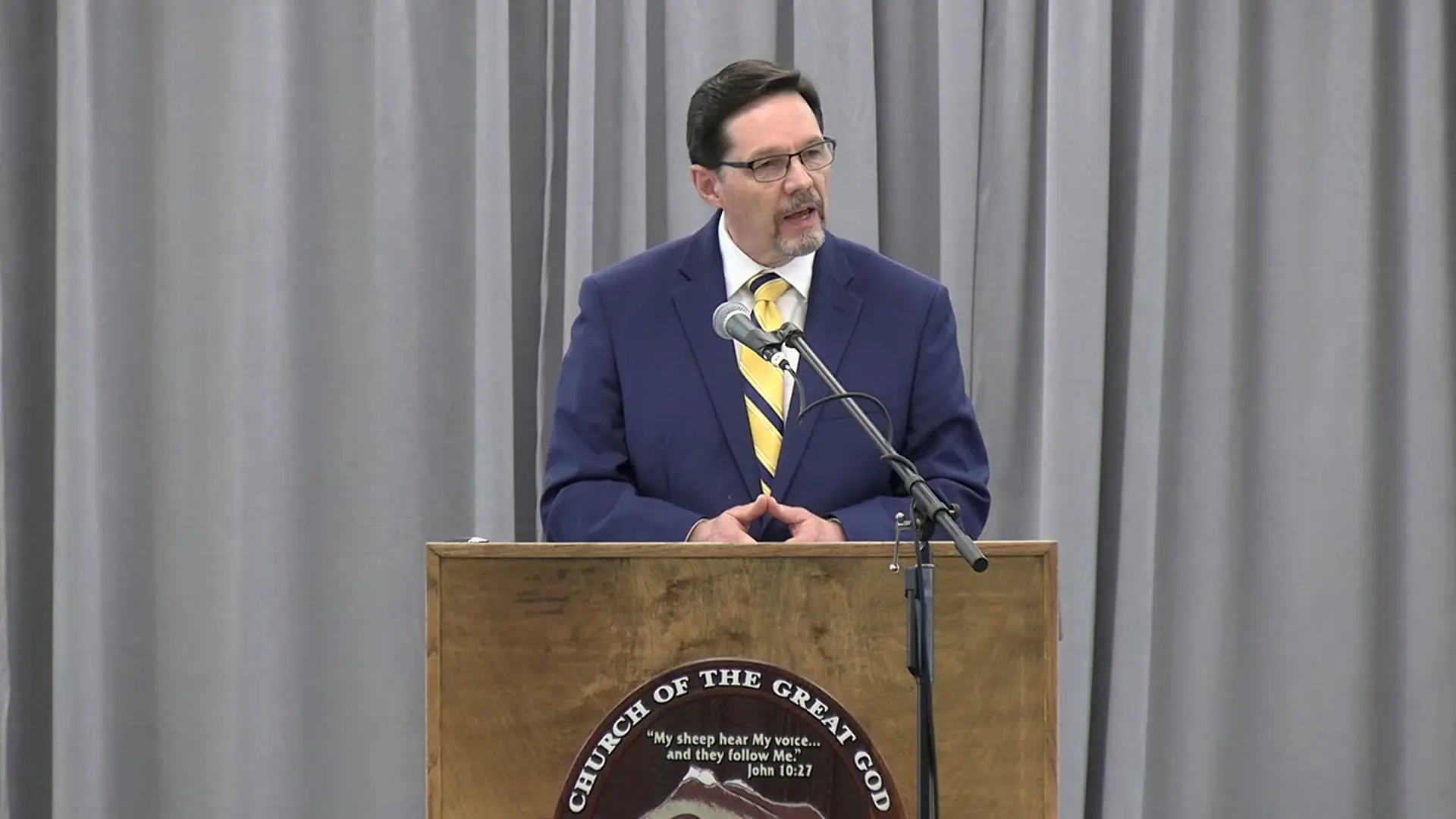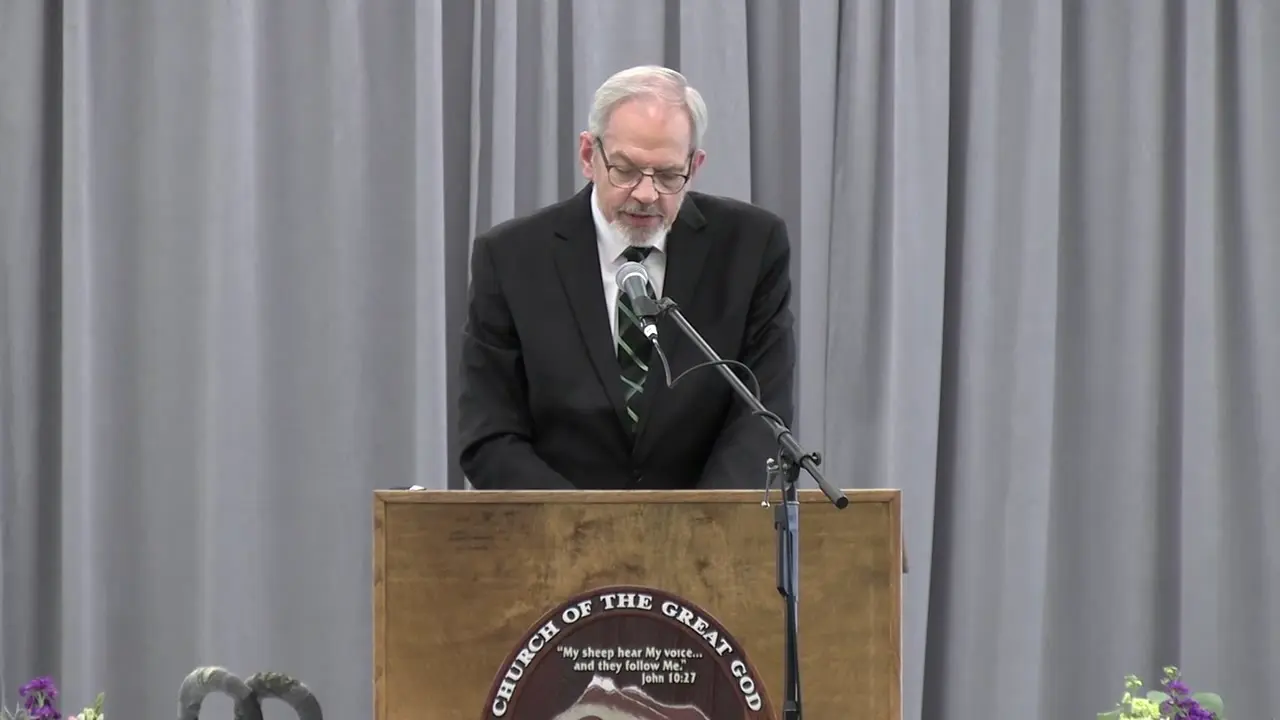Filter by Categories
Marriage—A God-Plane Relationship (Part Three)
CGG Weekly by Richard T. RitenbaughGod's involvement elevates the Christian marriage, making it a superior environment for character growth and preparation for the Kingdom of God. With His participation, the power is available to ensure its success, providing a clear advantage through His blessings and gifts. Marriage holds a far higher purpose than merely the physical union of a man and a woman. It serves as a representation on the human plane of the union between God and man, mirroring a similar intimacy in both relationships. Just as the physical bond between a man and woman makes them one flesh, a close spiritual unity with God makes a person one spirit with Him. Physical marriage, therefore, teaches us how to be spiritually one with God. As surely as God will bless the ultimate spiritual marriage between His Son and the Bride, He endows the physical type with the ability to fulfill its purpose of creating unity between partners, preparing them for union with Him.
Marriage and the Bride of Christ (Part Eleven)
Sermon by Martin G. CollinsOur concept of marriage must be positive and more mature, modeled after Christ's attentiveness toward the Church, as opposed to the world's distorted concept.
The Sacredness of Marriage
Article by James BeaubelleScripture holds the divinely ordained institution of marriage in high regard. Here is why God considers marriage to be so important to us, society, and His purpose.
Marriage and the Bride of Christ (Part Four)
Sermon by Martin G. CollinsGod established the order of family relationships, creating Eve after Adam, not as a slave, but as a companion, prefiguring Christ and His Church.
Marriage and the Bride of Christ (Part One)
Sermon by Martin G. CollinsWives are admonished to submit to their husbands, children to their parents, servants to their overseers, and we all are admonished to submit to one another.

The Eternal Privileges of the Bride
Feast of Tabernacles Sermon by Martin G. CollinsJust as a bride gains a new identity, name, and inheritance through marriage, God's chosen saints, share Christ's very life, glory, and eternal prospects.

The Lord's Nourishing and Cherishing
Sermon by Martin G. CollinsThe marriage covenant must be elevated to the stature of Christ and the church. A caring husband must love his wife as he nourishes his own physical body.
Remembering Who We Are
Feast of Tabernacles Sermon by John O. ReidWhen we consider the awesome contrast of what we were before God called us and what we are now, we cannot allow ourselves to commit spiritual fornication.
My Hour Has Not Yet Come
Feast of Tabernacles Sermon by Mark SchindlerJesus' response to His mother at the wedding—'My hour has not yet come'—was not disrespect but perhaps a challenge to attach real faith with mere knowledge.

The Two Shall Become One
Sermon by Bill OnisickThe fact that Abraham, Jacob, David, and Solomon multiplied wives does not imply that the Bible endorses polygamy, which produces bad fruit.

The Bride of Christ (Part One)
Feast of Tabernacles Sermon by Mark SchindlerGod's called and chosen people are being prepared, under Christ's direction, to become His perfect and faithful helpmate for eternity.
Love and Works
Sermon by John W. RitenbaughGod expects works from all He has called. We show our faithfulness and loyalty to God by our works or conduct - what we produce by what we have been given.
Leadership and the Covenants (Part Six)
Sermon by John W. Ritenbaugh (1932-2023)Paul urges Euodia and Syntyche to follow the example of Christ rather than placing their desire to be right over unity. Godly leadership follows submission.
Eating: How Good It Is! (Part One)
'Personal' from John W. RitenbaughThe Bible frequently uses analogies from physical life to explain spiritual principles. There are over 700 references to eating in Scripture.